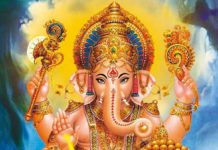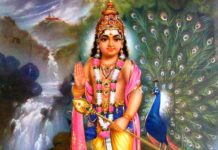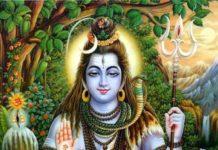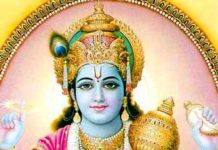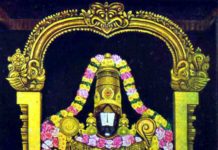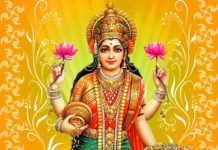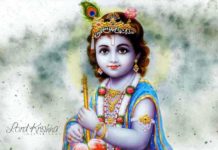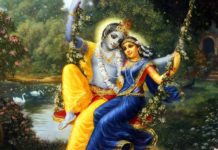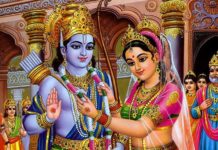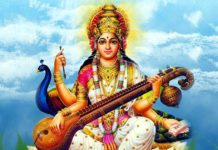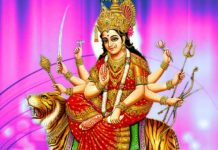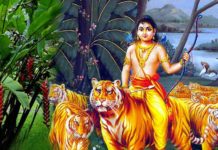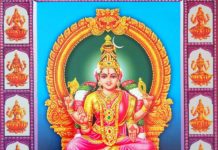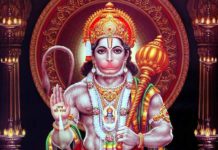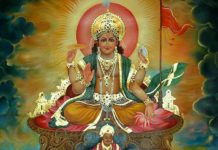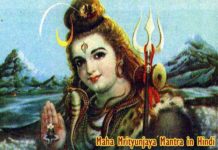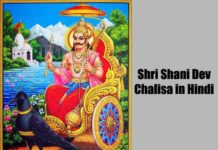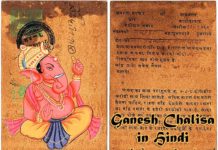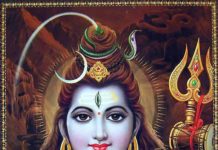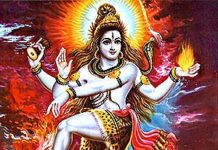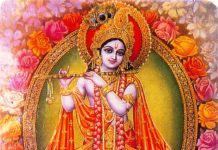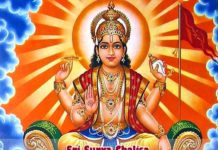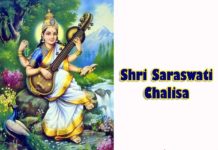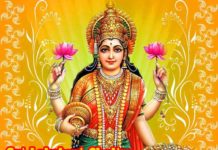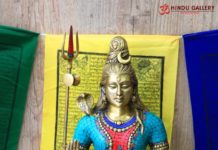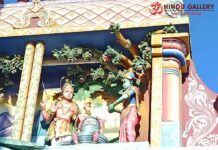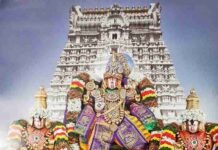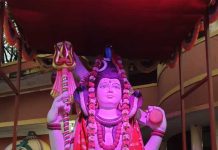Apara Ekadashi is the eleventh day from the Pournami day (Krishna Paksha Ekadashi) of Jyeshta month. It occurs on Sunday, 2nd June 2024 and Monday, 3rd June 2024. The exact duration of the Ekadashi Tithi has to be ascertained from the respective regional calendars.
Apara Ekadashi – Legend
The significance of Apara Ekadashi is said to be narrated by Bhagwan Sri Krishna to Yudhisthra, the head of Pandava Kings.
Once there was a King named Mahidhwaja. He was a good King. His brother Vasradhwaja got jealous of him and killed him. He had buried the body under a peepal tree.
Since the King had died before the end of his destined life, he had turned into a ghost and stayed on the tree. As the ghost, he troubled everyone who passed by.
One day, a Sage named Dhanumya came that way. The ghost started troubling him. The Sage, with the help of his spiritual powers, had understood as to why the ghost was troubling him.
That was the Ekadashi day. He thought of Sri Maha Vishnu in his mind and observed the Vrat. Then he had parted with the virtuous benefits of the Vrat to the ghost.
The ghost got sanctified and the soul of the King had attained salvation.
Rituals
The general rituals followed for Ekadashi Vrats are given below:
-The exact time of dawn of Ekadashi tithi is ascertained either from family elders / astrologers. It is mentioned in the Holy Almanac (Panchang) as well. Even daily Calendars provide the information.
-The idol or picture of Sri Vishnu is decorated with flowers. Incense sticks are lit. Diyas are lit with ghee. Pujas are done with tulsi leaves.
– The items such as Jambira fruit (goose berry), Pomegranate, Mangoes, Guava, Betal nuts and leaves, Coconut, Varieties of nuts and Cloves and other aromatic spices are offered in Puja subject to availability.
Slokas or stotras of Sri Maha Vishnu including Sri Vishnu Sahasra Nama are recited with devotion. Srimad Bhagavad Gitaa is also recited.
-Special Puja is done for Sri Lakshmi Devi as well.
-The Vrat Katha is read and recited.
-At the end of the puja, aarti is done. Prasad is distributed to the family members.
-Devotees of Bhagwan Maha Vishnu observe strict fasting from the dawn of Ekadashi.
-They do not sleep on the night of Ekadashi. At this time, tales of Sri Maha Vishnu are recited by the elders. Others listen to the stories.
-Various bhajans and kirtans are held.
-The fast shall continue till the sunrise of the next day, i.e., Dwadashi.
-Those devotees who cannot do fasting due to medical or other reasons can take sattvic food. Mostly prasadams and fruits are partaken.
-Making daan / donation to the needy on Ekadashi day is believed to please Sri Maha Vishnu.
-On Dwadashi day, unless it happens to be another Vrat day, a nutritious meal is partaken to balance the internal physical effects of fasting on the previous day. It is considered pious to forego eating of brinjal on Dwadashi day.
Apara Ekadashi – other names
In the Northern States of Punjab, Hariyana and Jammu & Kashmir, it is considered auspicious to worship Sri Bhadrakali on this day. Hence the Vrat is called as Bhadrakali Ekadashi.
In Orissa this Vrat is called as Jalakreeda Ekadashi as reverence to Bhagwan Jagannath.
The Vrat is also called as Achla Ekadashi and Vishaka Vadi Ekadashi.
Apara Ekadashi – possible benefits
“Apara” means “abundant”. It is believed that observing this Ekadashi Vrat bestows abundant wealth and other blessings.
It bestows the blessings equal to taking holy dip in the Ganges in the month of Karthiga.
The blessings equal to donating cows and performing yagnas are attributed for the observation of this Vrat.
Removal of sins.
There is a possibility for the problems to turn into opportunities for success.
Importance should be given to the sincere prayers to Sri Maha Vishnu.
The synopsis of Kamada Ekadashi, Varuthini Ekadashi and Mohini Ekadashi are narrated in the previous articles.






